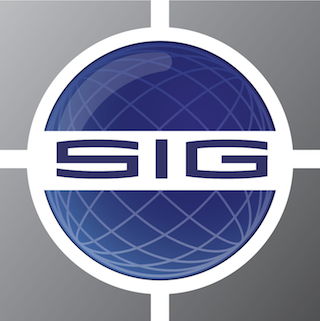The Ukraine War and EU “Strategic Autonomy”
The European Union has not yet been a significant actor in the Ukraine crisis. The EU’s hard-power defense capacity is exceedingly weak and focused mainly on defense-industrial policy. To the degree that “European defense” has a strong operational meaning, it is due to NATO, which is dominated by a non-European power (the US) and has several militarily significant non-EU members (the US again, Canada, and Turkey). Understandably, the consensus view has been that the EU is close to being a non-actor in the defense of Europe. However, various developments — the waning of American support for Ukraine, the chaos of British foreign policy, the political desperation of Emmanuel Macron, the sacrifice of Nagorno-Karabakh’s Armenians — may contribute, however unwittingly, to a strengthening of the EU’s security purpose, if only because they render the status quo less and less tenable.
Not long ago, the key question for the EU was whether it was evolving into a “two-speed” configuration, with “core Europe” leading or ignoring its periphery as it saw fit. The core-Europe idea, not surprisingly, had been associated principally with Germany — as Kernereuropa — since the end of the Cold War. Kernereuropa was a concept for fiscal rectitude, rather than centralized defense, and was revived in response to the eurozone crisis of 2009 and 2010. But the Brexit referendum of 2016, which removed Europe’s first- or second-ranked military from the EU table — a quick comparison of the British and French militaries is here — notably weakened Europe’s defenses in the absence of NATO. This brought further rounds of EU defense-policy rethinking amid an increase in German interest stimulated by the Russian annexation of Crimea in 2014. German interest inevitably brings French interest. French interest inevitably brings a conceptual framework of resistance to American power — at least, it has since De Gaulle, if not Clemenceau. After Emmanuel Macron was elected in 2017 and faced the neo-isolationism and unreliability of Donald Trump, he began to speak of European “strategic autonomy.” This meant autonomy from the US, which also meant autonomy from NATO. By 2019, Macron was speaking of “the brain-death of NATO.” Given Trump’s open questioning of the alliance, this was understandable. However, Germany and others still preferred to wait on events, even if Angela Merkel once spoke of Europe taking its fate “into our own hands.”
The accession to power of Joe Biden made the questioning of NATO less urgent for a French president. Biden promised a policy of friendliness toward allies, and toward democracies in particular. Strategic autonomy begin to lead a quieter life, with the focus shifting somewhat to cyber autonomy. In this comparatively mild environment, Macron was even able, after Russia invaded Ukraine at the end of February 2022, to attempt the role of mediator, insisting that Russia had its own perspective and Putin might be reasoned with. The US, Germany, and Britain ignored him.
By December 2022, Macron was shifting to the opposite view. By May 2023, he had fully transitioned, signing off on weapons transfers to Ukraine. Faced with a European policy on Ukraine that was being dominated by the US, Germany, and Britain, France presumably wanted a place among the actual decision-makers. Under Russian pressure, NATO itself was undergoing a strategic revival less than three years after being declared brain-dead. By the autumn, the French military and intelligence services were being humiliated by revolts in the Sahel and by the French, and European, inability to oppose the Azerbaijani offensive against the Armenians in Nagorno-Karabakh.
The cliché has been that Europe requires crises to move forward. Another way to put it is that the EU only learns from failures. As it is certainly experiencing an abundance of failures now, will they herald a period of learning and change? The growing American reluctance to spend on Ukrainian defense might well help force some strategic unity on aKernereuropathat has long resisted it. In a peculiarly European dynamic, the need for greater unity is being expressed, in part, by moves toward EU enlargement, which Germany’s defense minister has called “a necessary geopolitical consequence of Russia’s war.” Macron has also switched from opposing enlargement to backing it. When the Nobel Peace Prize committee gave the 2012 prize to the EU, it emphasized the union’s enlargement policy as a strategy for peace. It appears now to be part of a strategy for fighting a war, and a conflict on the periphery might give core Europe a security purpose it has always lacked.
